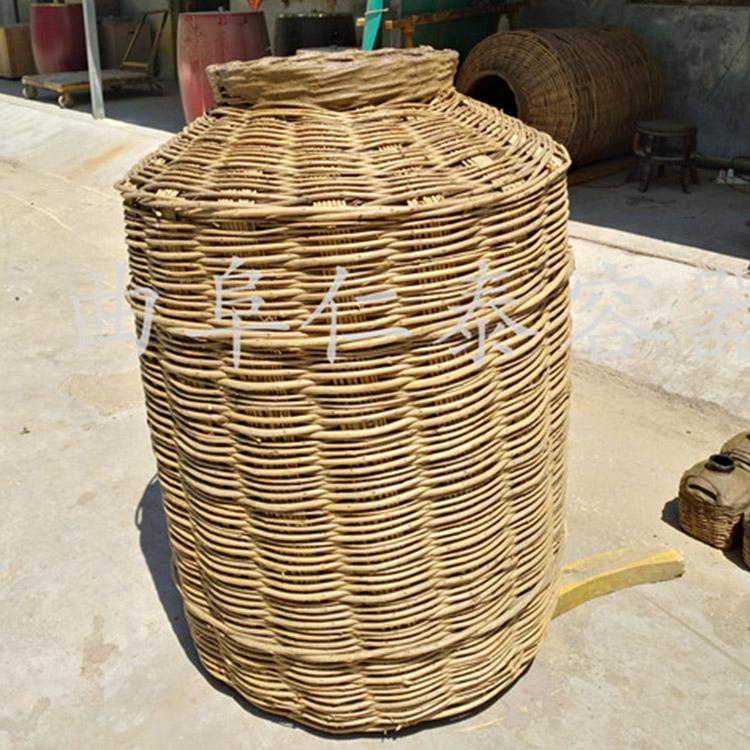夏日釀酒需求哪些操作?傳統釀酒有冬歇九、夏歇伏的說(shuō)法,意思是夏天或者冬季溫度太高或太低對發(fā)酵不利。而釀酒發(fā)酵更適合的溫度為20-30℃之間,而夏日溫度高,再加上傳統酒曲的酶活力差,不耐高溫,溫度過(guò)高,發(fā)酵簡(jiǎn)單酸敗,那么白酒釀造怎么度夏呢?
What operations do you need to make wine in summer? Traditional winemaking has the saying of resting in winter and resting in summer, which means that too high or too low temperature in summer or winter is harmful to fermentation. However, the most suitable temperature for liquor fermentation is between 20-30 ℃, and the high temperature in summer, coupled with the poor enzyme activity of traditional distiller\'s yeast, which is not resistant to high temperature, high temperature, simple fermentation and rancidity, how can liquor brewing survive safely in summer?

一、溫度操控
1、 Temperature control
溫度的操控是釀酒或者說(shuō)是釀造好酒的關(guān)鍵因素之一,很多老師傅都是憑仗多年經(jīng)歷自己總結了一套溫度的操控規范。夏天釀酒溫度操控較難,也是更重要的點(diǎn)之一。
Temperature control is one of the key factors in wine making or good wine making. Many teachers and Fu have summed up a set of temperature control specifications based on their own experience for many years. It is difficult to control the brewing temperature in summer, which is also one of the most important points.
釀酒的進(jìn)程,是微生物代謝的進(jìn)程,每種微生物成長(cháng)和代謝的環(huán)境和溫度有所不同。白酒發(fā)酵主要是酵母菌和根霉菌代謝的進(jìn)程,更適合的溫度在28-38℃之間,所以在發(fā)酵進(jìn)程中溫度應操控在38℃以下才能有高產(chǎn)、高質(zhì)的酒產(chǎn)出。
The process of wine making is the process of microbial metabolism. The environment and temperature of growth and metabolism of each microorganism are different. Liquor fermentation is mainly the process of metabolism of yeast and Rhizopus, the most suitable temperature is between 28-38 ℃, so in the fermentation process, the temperature should be controlled below 38 ℃ to produce high-yield and high-quality liquor.
夏日建議更好是整粒直接進(jìn)行泡糧食、蒸煮和發(fā)酵,這樣有利于操控糟醅的淀粉濃度,使發(fā)酵速度變慢,便于溫度的操控。
In summer, it is suggested that the whole grains should be soaked, digested and fermented directly, which is beneficial to control the starch concentration of the fermented grains, slow down the fermentation speed and facilitate the temperature control.
攤涼時(shí),咱們能夠選用空調或者電扇等工具盡快進(jìn)行降溫,不必憂(yōu)慮溫度流失的過(guò)快而導致糧食溫度過(guò)低不利于后期的發(fā)酵,的攤涼后的溫度是在30℃左右。釀酒場(chǎng)所要做到蔭涼、通風(fēng),避免陽(yáng)光直射的場(chǎng)所。
When we cool down, we can use air conditioner or electric fan and other tools to cool down as soon as possible. We don\'t need to worry about too fast temperature loss, which will lead to low grain temperature, which is not conducive to later fermentation. The best temperature after cooling is about 30 ℃. Wine making place should be shady, ventilated and avoid direct sunlight.
在夏日釀酒,箱升溫的起伏應在5-7℃,初始溫度一般建議在30℃以?xún)龋涓咴?5厘米左右為,不要出成老箱或者酸箱。夏日做箱很簡(jiǎn)單成老箱,也便是咱們通常所說(shuō)的糖化過(guò)度,做箱更主要的目的是在于酒曲中菌種的擴培及糧食淀粉的初步糖化分解。
In summer brewing, the temperature rise and fall of the box should be 5-7 ℃, the initial temperature is generally recommended to be within 30 ℃, and the box height is about 15 cm, which is the best. Do not leave the old box or acid box. In summer, it is very simple to make a box into an old box, which is what we usually call excessive saccharification. The main purpose of making a box is to expand the cultivation of strains in the koji and the preliminary saccharification and decomposition of grain starch.
出箱的判別規范:
Criteria for outgoing:
(1)用手捏,調查糊水,能捏出小水花即可;
(1) Knead with hand, investigate paste water, can knead small water flower;
(2)用口嘗,有微甜感;
(2) Taste with your mouth, it\'s slightly sweet;
(3)用鼻聞,有一股清香味,一起酒醅要無(wú)臭味、酒味。
(3) With the nose, there is a clear fragrance, and the fermented grains together should be free of odor and alcohol.
在入池發(fā)酵的前48個(gè)小時(shí),一起結合發(fā)酵容器的差異,溫度流失的快慢程度,這個(gè)升溫起伏會(huì )有所不同。溫度需求操控的頂溫是在38℃以?xún)龋黄痤A留發(fā)酵時(shí)8-10℃的溫度變化空間,那么入池發(fā)酵的溫度應操控在26-28℃以?xún)取?/div>
In the first 48 hours of fermentation, combined with the difference of fermentation vessel, the speed of temperature loss will be different. The top temperature of temperature demand control is within 38 ℃, and the temperature change space of 8-10 ℃ during fermentation is reserved together, so the temperature of fermentation in the tank should be controlled within 26-28 ℃.
如發(fā)酵溫度上升38℃,后續并未再次升高的話(huà),一般不會(huì )影響發(fā)酵結果,這是酒醅現已進(jìn)入了產(chǎn)酯的階段。
If the fermentation temperature rises to 38 ℃ and does not rise again, the fermentation results will not be affected generally. This is that the fermented grains have entered the stage of ester production.
假如溫度還在持續上升,那么需求及時(shí)采取降溫措施,能夠適當加一些涼水、翻糟進(jìn)行降溫,液態(tài)發(fā)酵因為有水的存在,溫度相對簡(jiǎn)單操控。
If the temperature is still rising, cooling measures should be taken in time to properly add some cold water and turn the lees for cooling. Because of the existence of water, the temperature of liquid fermentation is relatively simple to control.
夏日釀酒更簡(jiǎn)單呈現的問(wèn)題:
The most simple problems of wine making in summer:
1.糖化老箱。糖化老箱對于后期的發(fā)酵會(huì )造成一些不良影響,導致升溫高,酒苦澀,下降出酒率。
1. Saccharification old box. The old saccharification tank will cause some adverse effects on the later fermentation, resulting in high temperature rise, bitter liquor and reduced liquor yield.
2.糖化溫度高。箱溫較高會(huì )影響霉菌的活性,造成糖化不完全,糧食利用率低,淀粉含量較高,后期發(fā)酵升溫猛、溫度高,導致出酒率低,酒酸味重。
2. High saccharification temperature. High box temperature will affect the activity of mold, resulting in incomplete saccharification, low utilization rate of grain, high starch content, fierce temperature rise and high temperature in the later stage of fermentation, resulting in low liquor yield and heavy sour liquor.
發(fā)酵溫度高。發(fā)酵溫度高會(huì )下降酵母菌的活性,而糟醅中的其它雜菌,如乳酸菌和醋酸菌會(huì )很多繁衍,將糖直接轉化成酸類(lèi)和酯類(lèi),導致出酒率低,酒精度低酸味大。
High fermentation temperature. High fermentation temperature will reduce the activity of yeast, while other miscellaneous bacteria in the fermented grains, such as lactic acid bacteria and acetic acid bacteria, will multiply, directly convert sugar into acids and esters, resulting in low liquor yield and low alcohol and high acid taste.

 不銹鋼酒罐的產(chǎn)品概述及特點(diǎn) 2024-06-13
不銹鋼酒罐的產(chǎn)品概述及特點(diǎn) 2024-06-13  自動(dòng)售酒機的產(chǎn)品特點(diǎn) 2024-06-07
自動(dòng)售酒機的產(chǎn)品特點(diǎn) 2024-06-07  全自動(dòng)涼茬機的使用故障有哪些? 2024-05-24
全自動(dòng)涼茬機的使用故障有哪些? 2024-05-24  不銹鋼內膽實(shí)木酒桶:木酒桶如何儲存葡萄酒? 2024-05-23
不銹鋼內膽實(shí)木酒桶:木酒桶如何儲存葡萄酒? 2024-05-23  自動(dòng)售酒機有哪些功能 2024-05-22
自動(dòng)售酒機有哪些功能 2024-05-22  全自動(dòng)涼茬機的工藝流程以及組成 2024-05-21
全自動(dòng)涼茬機的工藝流程以及組成 2024-05-21  不銹鋼內膽實(shí)木酒桶:不銹鋼材質(zhì)的優(yōu)勢 2024-05-20
不銹鋼內膽實(shí)木酒桶:不銹鋼材質(zhì)的優(yōu)勢 2024-05-20  自動(dòng)售酒機如何識別你拿的東西? 2024-05-17
自動(dòng)售酒機如何識別你拿的東西? 2024-05-17  全自動(dòng)涼茬機使用注意事項 2024-05-16
全自動(dòng)涼茬機使用注意事項 2024-05-16  放置自動(dòng)售酒機有什么好處? 2024-05-15
放置自動(dòng)售酒機有什么好處? 2024-05-15  不銹鋼內膽實(shí)木酒桶:不銹鋼桶可以長(cháng)期裝酒嗎? 2024-05-14
不銹鋼內膽實(shí)木酒桶:不銹鋼桶可以長(cháng)期裝酒嗎? 2024-05-14  全自動(dòng)涼茬機的使用方法 2024-05-13
全自動(dòng)涼茬機的使用方法 2024-05-13